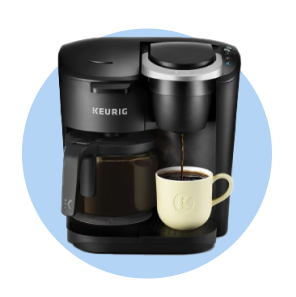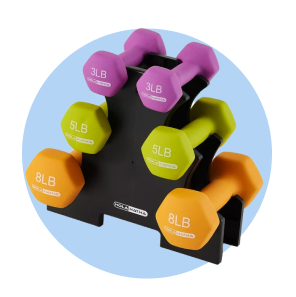
How The “Deinfluencing” Movement Can Affect Small Business Owners
Influencer marketing is changing
Influencer marketing is big business; the global value of the industry is expected to reach $24 billion by the end of 2024. While the strategy traditionally asks influencers to use their platform to promote products and services, there’s a new mode taking over: deinfluencing. The deinfluencing movement turns influencer marketing on its head by prioritizing authenticity and thoughtfulness over excessive spending. What does this mean for small business owners who have been trying to make their way in the Wild West of social media marketing? In this article, we’ll explore everything you need to know about the deinfluencing movement.

The ups & downs of traditional influencer marketing
Much of the momentum behind influencer marketing’s success comes from the idea that consumers trust recommendations from their peers more than they trust branded content. Pair that trust with the inherent persuasiveness of visual content like photos and videos, and it’s no surprise that influencer marketing holds a lot of sway. As platforms like Instagram, TikTok and Snapchat become overrun with influencer content, however, some of that success is coming under scrutiny.
Social media users are becoming increasingly suspicious of influencer content; according to one study, 90% of consumers no longer trust influencers. It’s not always easy to tell when content has been paid for by a business, essentially making the post another ad instead of an honest recommendation. Consumers are still seeking out social media recommendations from their peers, but authentic user-generated content from actual customers stands in stark contrast to paid ads placed on popular influencer accounts. That suspicion is one of the most important factors that led to deinfluencing.

What is the deinfluencing movement?
The deinfluencing movement encourages people to shop smarter and make better use of what they already have. While social media has become an influencer’s playground, the average U.S. consumer is also becoming more price-conscious in the face of widespread inflation. Instead of encouraging social media users to buy, buy, buy, deinfluencing encourages more thoughtful and patient shopping habits.
Some creators take a philosophical approach to deinfluencing, talking about the harmful impacts of mindless consumerism on society and the environment. Others use the deinfluencing hashtag to take issue with products they personally purchased after influencers recommended them online. Some deinfluencers use their platforms to disagree with trending advice that other popular creators in their industry are sharing.
What all these aspects of the deinfluencing movement have in common is a healthy dialogue about consumer culture in the world today. Most deinfluencers want to encourage more mindful consumption and help everyday people get more accurate and reliable information about the products gaining popularity online.

What deinfluencing means for small businesses
The truth is, deinfluencing is just another flavor of influencer marketing. Instead of canceling influencer culture, creators are wielding their influence in a new direction. This new era is a boon for small business owners, who are more likely to be aligned with the deinfluencing trend. While traditional influencer marketing can sometimes be prohibitively expensive for small businesses, the deinfluencer movement prioritizes authenticity and trustworthiness.
The small business owners that take those qualities to heart will be in the perfect position to support the influx of deinfluencers looking for alternative or “dupe” products they can recommend. Here are a few simple steps to make the most of the deinfluencer trend:
- Connect with consumers: One of the benefits of running a small business compared to a major corporation is that there’s less distance between you and your customers. Open a dialogue with your audience to build meaningful relationships, foster loyalty and inspire honest user-generated content.
- Tell your story: Creators will seek out authentic and trustworthy brands to replace the products and partners they’re deinfluencing. Make it easy for creators and customers alike to learn your small business origin story and fall in love with the team that makes it all happen behind the scenes.
- Promote brand values: If you know what your small business stands for, now’s the time to shout it from the rooftops. The deinfluencer movement is all about replacing mindless consumption with more considered purchases, so creators will relish the opportunity to partner with a brand that has an ethical point of view.
For more tips on working with influencers, read our article: “5 Effective Social Media Marketing Tips for Small Business”.
Deinfluencer marketing is here to stay, but don’t chase trends
Even the consumers that have become skeptical of influencer recommendations still trust user-generated content more than content from brands. Deinfluencers are still influencers at the end of the day, and they’re here to stay. Whether you’re looking to work with influencers, deinfluencers, or both, remember that the most important thing isn’t how trendy they are, but whether they’re the right fit for your brand. Authenticity matters, and nobody knows your values better than you do, so make choices that make sense for today and tomorrow.
Looking for more resources about successful social media and influencer marketing for small businesses? Browse the Walmart content hub to find marketing tips, financial guides and more. For other business needs, sign up for a Walmart Business+ membership to unlock free shipping,1 free delivery from store on orders over $352 and 2% back in Walmart Business Rewards for purchases over $250.3 You can even save over $500 a year!4 Learn more here.


Limited-time offer
Unlock your special promo code
Stay informed on Walmart Business news & get $20 off a $100 purchase!1
1Minimum order of $100. Promo code can be used one time & may not be combined with other offers. Offer not transferable & void where prohibited by law. Customer responsible for all applicable taxes. Offer expires 12/31/2025 at 11:59pm PT. Further restrictions apply. See terms at checkout for details. Promo code offers available in limited quantities. While supplies last.
1 Excludes most Marketplace items, freight and certain location surcharges.
2 Restrictions apply.
3 Rewards can only be used toward future purchases on Walmart Business. Additional terms apply.
4 Savings based on 1 free $35+ delivery order vs. $9.95 fee and 1 free shipping order under $35 vs. $6.99 fee biweekly, plus 2% Walmart Business Rewards on monthly order >$250 (average value of $400).
Exciting news awaits
Hear firsthand about new products, features & promotions.
By clicking submit, you agree to receive emails about Walmart Business and acknowledge you have read and agreed to our Terms of use and Privacy Policy.










